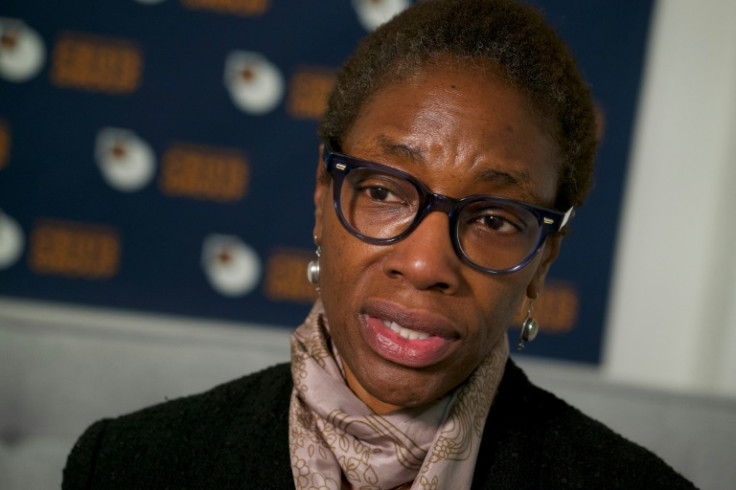
The risk of a "major miscalculation" in the Middle East is growing by the day as the war between Israel and Hamas rages on, Comfort Ero, president of the Crisis Group NGO, told AFP.
Ongoing conflicts across the globe, from Sudan to Ukraine, are also creating a bleak geopolitical landscape.
In an interview with AFP, Ero spoke of a world in crisis, but maintained that there was "still a glimmer of hope."
Here are excerpts from the discussion:
Q: The ramifications from the Israel-Hamas war have been felt far beyond the region. What sort of possibilities exist in the short and medium term? What is the risk of escalation, particularly with Iran?
A: "There are talks now emerging of a 40-day sort of truce. And that's the foundation, getting that 40 days and then building up on that. So that's the most important piece of the jigsaw."
As for the possibility of a larger war, "I think the big three -- Iran, Israel and the US -- do not want to see escalation. But we are also seeing that every day we're one step closer to a major miscalculation. Averting that kind of catastrophe again becomes really important."
Q: Ukraine has been garnering less attention since the war in Gaza broke out in October, particularly as the conflict with Russia grinds on with no end in sight. Do you think there's room to start negotiations with Russian President Vladimir Putin?
A: It's difficult as US elections approach, Ero said.
Putin sees that "Ukraine has become a political football in Washington, sees that that sort of unity that was there between the US and Europe may be fraying because again, of how Ukraine has been caught up in the domestic politics of the US."
Q: The US is careening towards a rematch between President Joe Biden and ex-president Donald Trump in the November election. What impact will this have on the country's foreign policy?
A: "People watching the US appear very nervous. And I think it's about the uncertainty and the unpredictability."
"I think the US is still seen as an influential player -- both positively and negatively -- internationally. But I think increasingly there's alarm, there's concern, there is uneasiness about the uncertainty, the unpredictability, just the polarization, the division."
Q: Given the multiplication of conflicts around the world, is there still room for diplomacy?
A: "Diplomacy is being tested. There's places where we don't see diplomacy at work, where the battlefield dynamics go in a different direction, go in the wrong direction.
"Sudan, for example, is a classic case of where diplomacy is often being shunted to the side and where there's a preference to use war. We saw it last year in Azerbaijan's reclaiming of Nagorno-Karabakh. We're seeing it also in Myanmar."
"When you look at the conflict landscape, no region is untouched. Nowhere is sort of isolated from crisis. And yet there's a lot that you can do to do preventive diplomacy."
"At a time when we say that multilateralism is crumbling there is still a glimmer of hope there. The question is whether leaders are willing to seize the opportunity, whether they're able to craft and shape the opportunities to allow for diplomacy to flourish as well."







